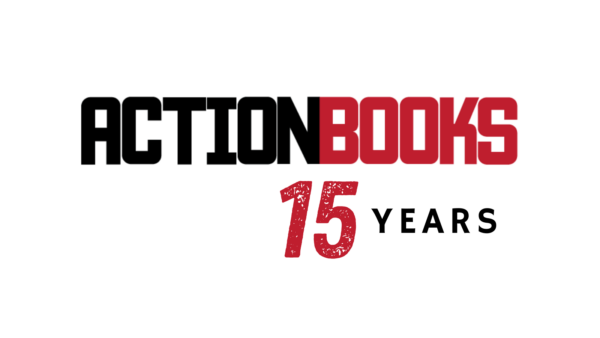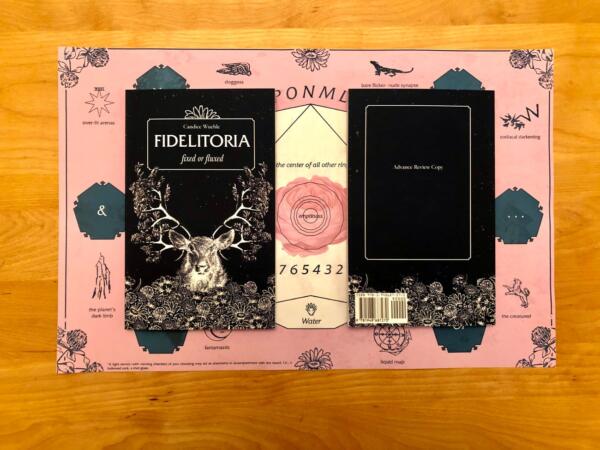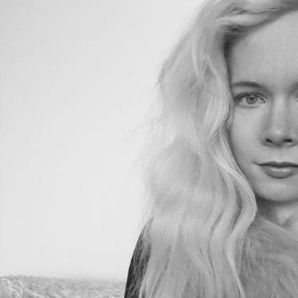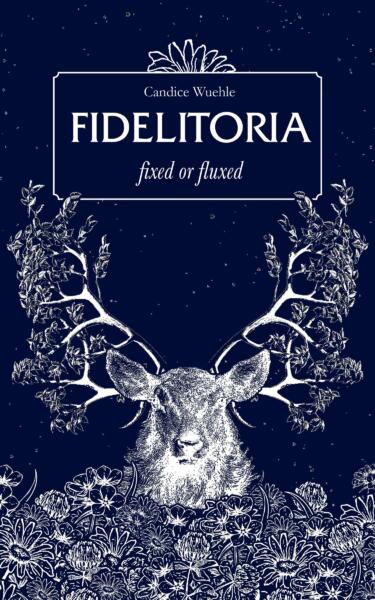
Paul Cunningham: What was the impetus behind Death Industrial Complex? Did your time spent living in Colorado help you connect to the life and work of Francesa Woodman in any way?
Candice Wuehle: The impetus was a Woodman photo I saw in an art museum when I was seventeen. It was a single image in a show about conceptual art from the ‘70s that included work by Cindy Sherman, whom I immediately became obsessed with. I forgot about Woodman for a decade, but when I remembered the recollection had that extra aura of a remnant. It was uncanny—not just as regards the subject matter of her photos—but also in the way her image stayed in my memory and incorporated itself so that when reencountered, I felt like I was meeting myself.
As for Colorado—I’d visited Rome and RISD, where Woodman took a huge number of her photos. These places made me feel I understood something about her sense of composition and decay and layered time. In Colorado, I felt like I got closer to understanding her sense of light and humor and drama. There’s something sort of funny, sort of hysterical about how severe the mountains are and how thin the light, but at the same time—there’s actual glitter everywhere in the snow crystals or Technicolor in the rainbows. The goth is always right there with the glam, which is so Woodman.
PC: What is one of your favorite poems or passages from Death Industrial Complex and why?
CW: “alpineglow/astrophobia.” This was one of the few poems I actually wrote while living in Colorado, so it’s a little bit of a portal to the gothic mountainscape shot through with occasional rainbows I lived in. This poem has become a sort of calming balm or a self-hypnosis for me. I get very anxious before readings, but my husband told me this story about Thom Yorke writing “How to Disappear Completely” as a way to compose himself before a concert—I think he calls it a “self-lullaby.” This poem is a kind of mantra, a grounding ritual.
PC: Can you tell us about any new projects on the horizon?
CW: Fidelitoria: fixed or fluxed will be coming out on May 4th, which I am excited for but I am actually more excited for it’s accompanying spirit board. I remember being in one of Joyelle McSweeney’s courses where we were reading Christian Hawkey’s Ventrakl and someone (maybe Joyelle!) pointed out that Ouija translates to oui=yes, ja=yes. The “yes-yes” board. I tried to design the Fidelitoria spirit board as a “yes-and, also this” board. A sort of occult maximalism, a tool to write or know too much, to add to the psychic excess.

Poems and board written by Candice Wuehle and designed by Mike Corrao.
PC: Who are you currently reading?
CW: A Bell Curve is a Pregnant Straight Line by Vi Khi Nao (forthcoming from 11:11 Press this spring/summer), which describes itself in a brief opening poetic as “a termite insurrection against style” and divides itself into four parts: “Shorts, Shirts, Skorts, Skirts.” As this segmenting suggests, this book is (to me) about the body and its relationship with showing and seeing the outside world. It is at turns devastating and hilarious. One of the poems is a sort of review of Portrait of a Lady on Fire, which is to say Vi always does things that leave me remembering—oh yeah, you can do that in poetry! Similarly, I’m reading Authors of the Impossible: The Paranormal and the Sacred (Jeffrey Kripal), which supposes that the paranormal serves as a “bridge” between religion and science. More interesting to me is the intellectual history that details the academy’s embrace and rejection of paranormal phenomenon. Kripal sort of psychoanalyzes academic institutions themselves through his critique of what and how scholarship gets reified, which, again, shakes me out of my usual patterns of thought. Also, the first line of Authors of the Impossible is very Action Books: “An opening is a beginning, but it is also a hole.”
PC: What advice would you give to emerging poets?
CW: Well, I feel like I am still emerging and the only advice that resonates with me is this lepidopterological truth my friend Meredith Blankinship told me: when butterflies are in their chrysalis, they basically become sentient goo. When they emerge, they still remember their caterpillar state. Is that advice?

